I got a comment on an earlier post on Legal Health checkups, from Kristina Brousalis who works at CLEO, a public legal education and information organization in Toronto, Ontario. She sent me a link to a Canadian online health checkup site, that serves consumers in Ontario.
The site asks some questions to get a profile of the user, and then connects them with possible help & understanding of what next steps could be.
It is an interesting model of intake & of public education. It can be an activation experience, to get people to start thinking of what problems in their life have a legal component — and a possible legal solution. After going through the questions, the site provides some path to follow up & get possible problems taken care of. Presumably, it also is able to send on the user’s profile to a legal clinic, for a relatively warm hand-off to the service provider.
I love to see new models of intake & activation. I was recently speaking with my colleague Briane Cornish about how to set up a pop-up legal activation — getting legal checklists, education materials, and risk profiles out into the community. I want to experiment with how we can devolve legal resources out of courthouses & self-help centers, and into the communities day-to-day locations. Like in Costcos, train stations, schools, libraries, and other public touchpoints.
One of the ideas that Briane had was to to have a checklist for different age ranges. The user would be asked the checklist of questions, and then be given a personalized legal risk profile. From there, we could possibly give them contact details for legal services and self-help centers — or well-designed paper-based resources to help them understand what processes and resources are available to them.
Online models, like the Canadian health check-up site, are another way of devolving intake. The open question is how many people will end up on the website. I would love to see a combination of online & in-person *Legal Activation* experiences.
Here are some screenshots of the Canadian checkup site, to get a sense of the experience: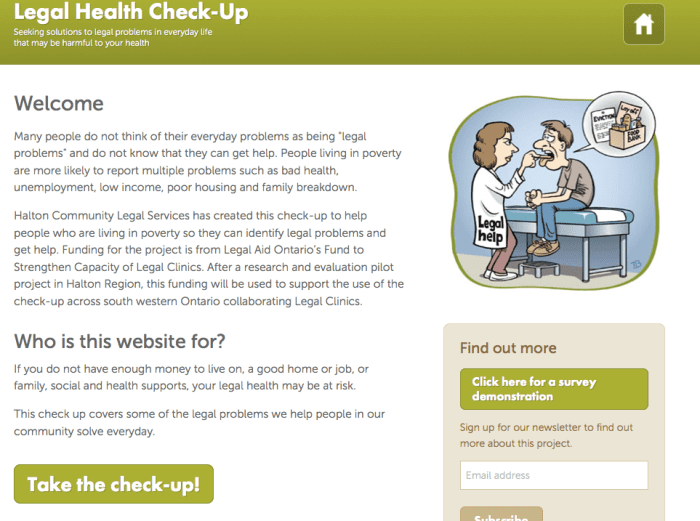
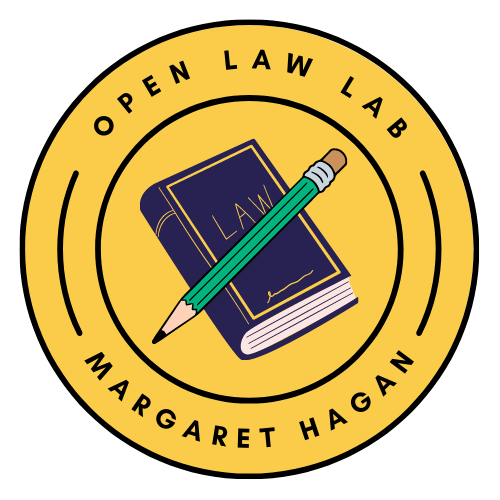
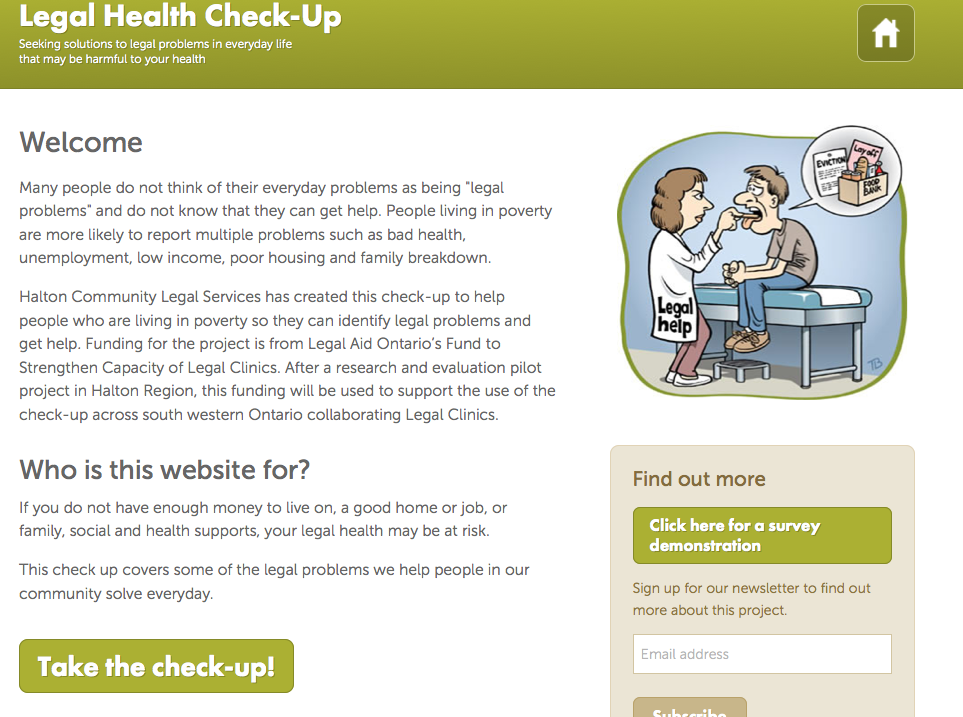
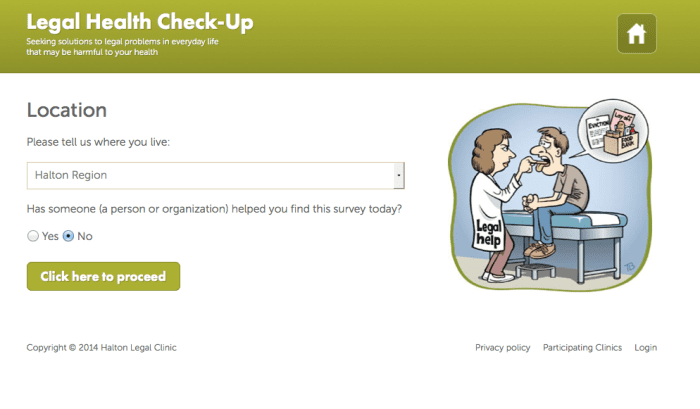
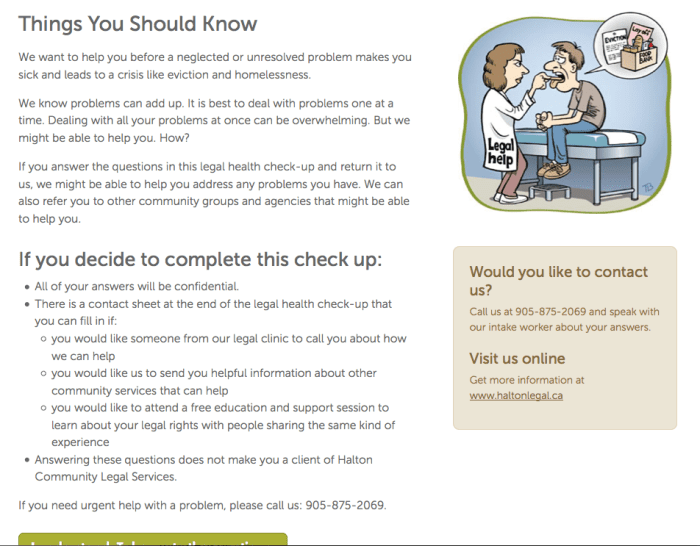
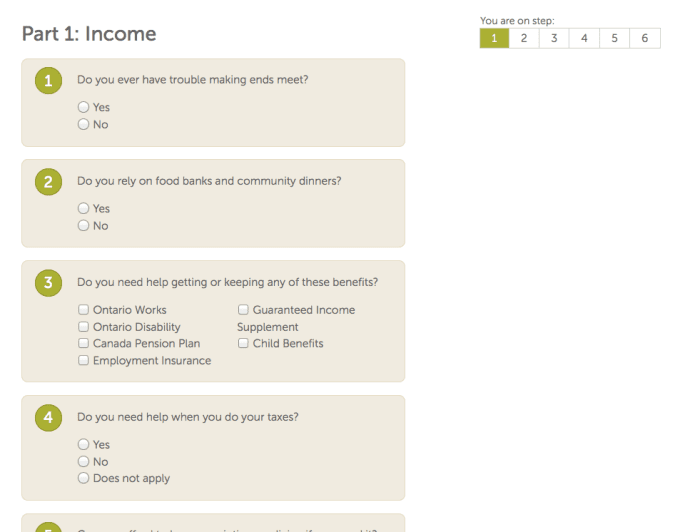
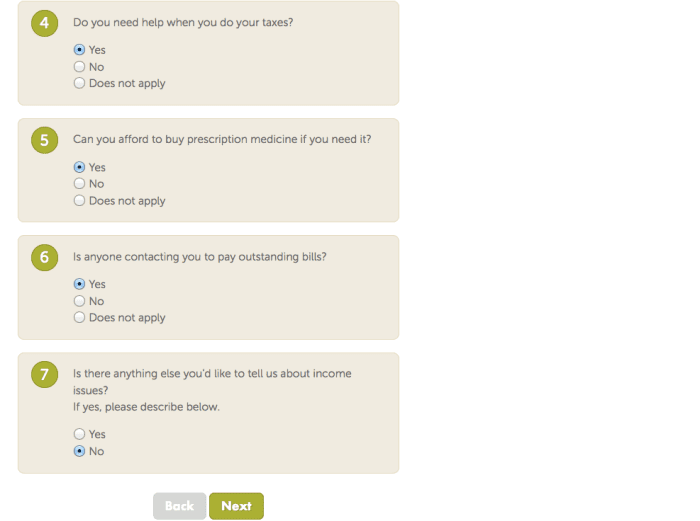
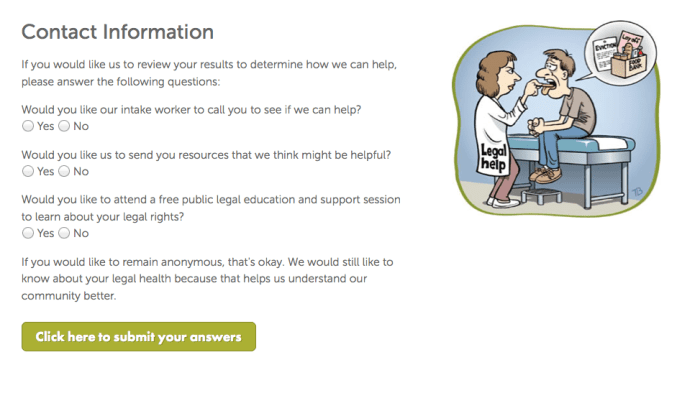
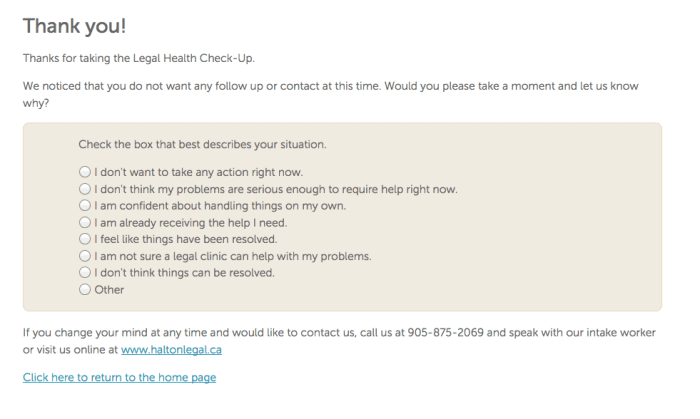
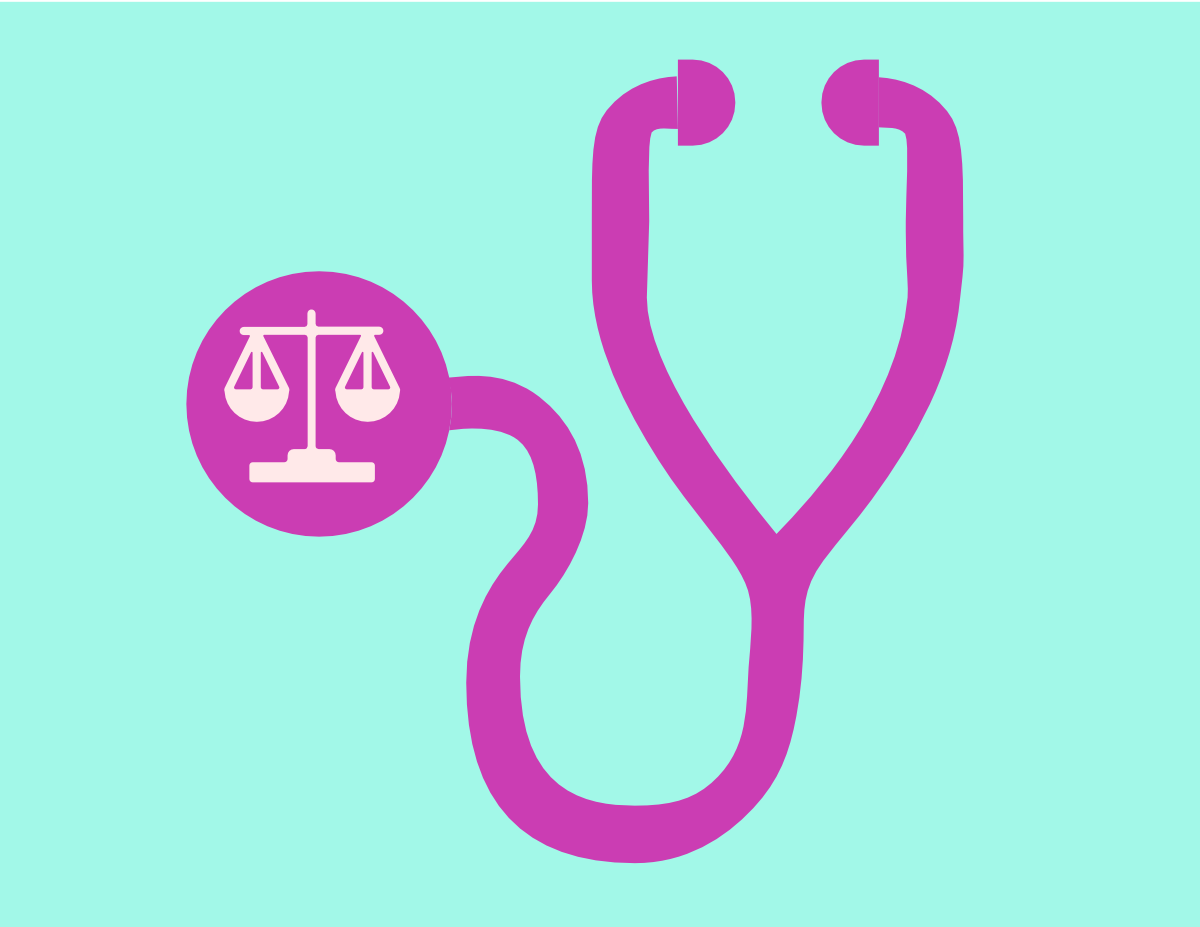
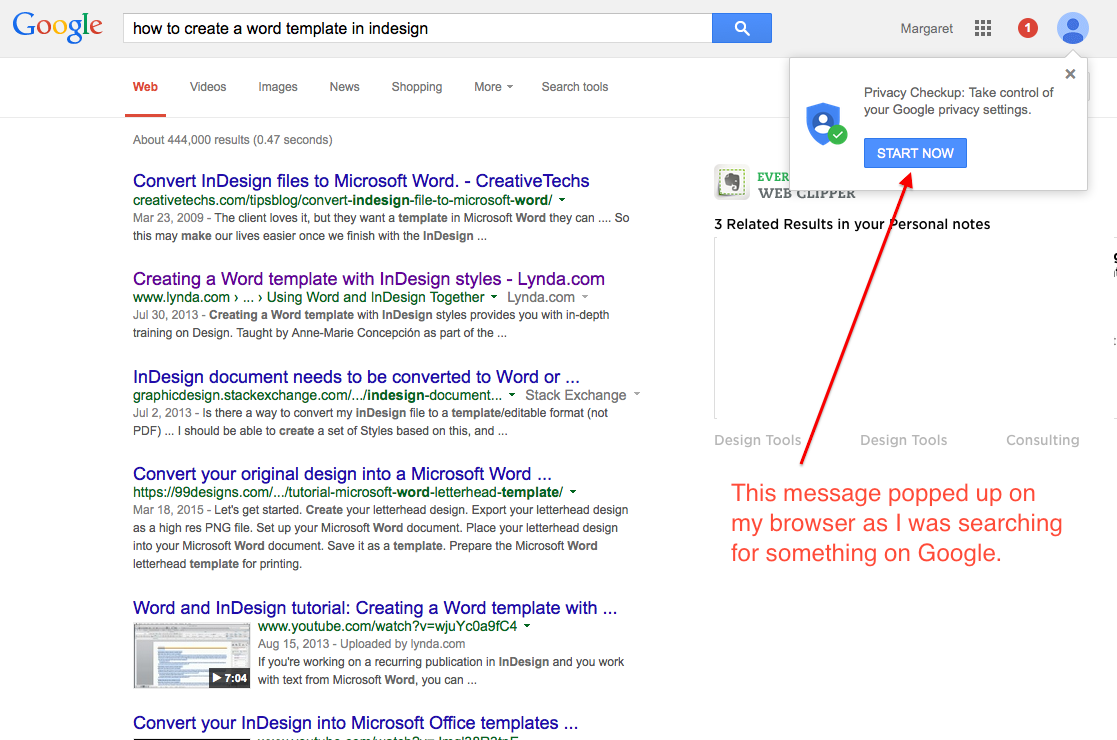
3 Comments
Hi Margaret: thanks for this interesting blog post. Please note that the Halton project (whose website you featured here) is part of a wider initiative to track legal needs and design interventions in four counties in Southwestern Ontario – they will also be conducting research on the findings, to my understanding. There is a lot of interest in this approach throughout Ontario, however… there is some background information about the SW (Halton) project here – http://www.plelearningexchange.ca/resources/legal-health-checks/legal-health-checks-ontario-canada/. There was also a similar interesting initiative in Queensland, Australia which tracked data and outcomes – see this link for more information: http://www.plelearningexchange.ca/resources/legal-health-checks/legal-health-checks-australia/
Hi Margaret,
This looks really nice. It reminds me of the Rechtwijzer (Signpost to Justice) project we did for the Dutch Legal Aid Boards a couple of years ago. This tool also analyses a persons needs and abilities, and refers them to the proper next steps. These could include online tools, but also lawyers or mediators. Roger Smith did a nice piece on it: http://www.rogersmith.info/ive-seen-the-future-it-works-maybe-and-its-in-dutch/
Hi Margaret:
They just released an evaluation report of the pilot project – the results, at least regarding involving intermediaries, seemed very promising. See page 15 for the stats relating to the web-based component of the “intake”. Here’s a link to the report: https://www.homecooked-websites.com/homecooked/clients/legalhealthcheckup/#p=1
Or, if that doesn’t work, it’s available in PDF via this link: http://www.plelearningexchange.ca/database/extending-the-reach-of-legal-aid-report-on-the-pilot-phase-of-the-legal-health-check-up-project/